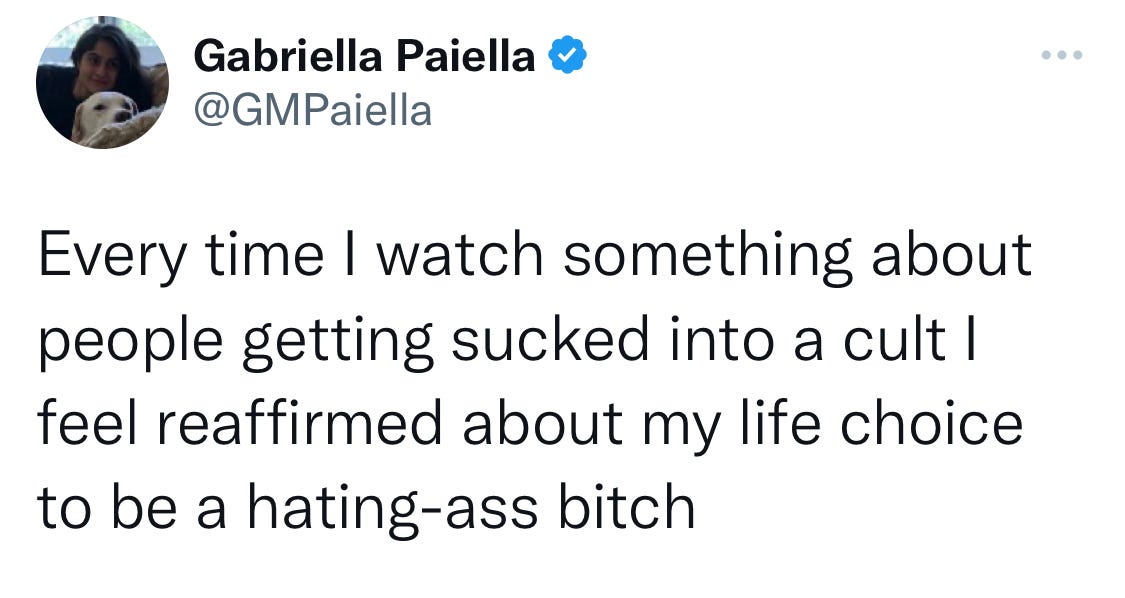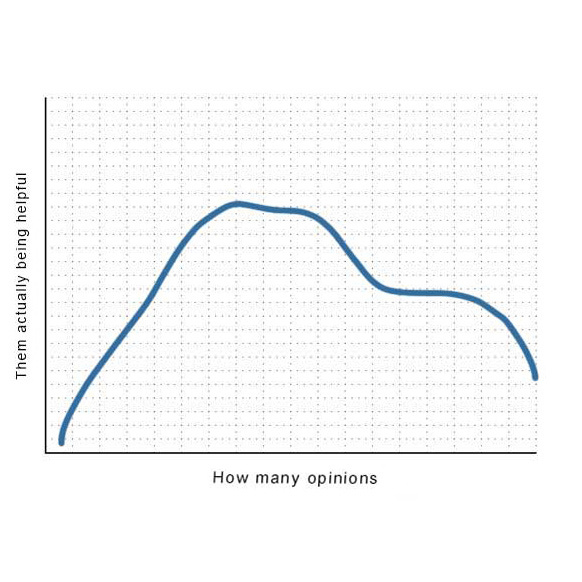Lately, we (I, me) have been interrogating the existential question of where opinions come from. People are very protective of their opinions, which is weird to me since they change all the time. Remember when we all thought low-rise jeans were good and normal? Remember when we all thought Britney Spears was a head case? Opinions hold court the same as any tyrant — they’re appointed by disgruntled masses and both conveniently guillotine-shaped. It’s silly to believe that our own opinions are completely unique deductions formed of our own volition based on our own individual values and intellect. Literally, show me an original opinion. What is it even good for? Why must I form one? Can I sit it out?
What it comes down to is: Is any of this shit any good? How do we know what’s good? What even is “good?” Why does everything need to be good or bad? Why does criticism hold more weight than praise?
In my day (2001) we did not tolerate hateration, nor its close counterpart holleration, despite bullying and otherwise destructive behavior being pretty normalized. But now hating is both a reaction to our collective lifestyle of perpetual marketing and also a valuable engagement metric for our collective lifestyle of perpetual marketing.
While de-influencing is a term that many are momentarily championing (meanwhile UNfluencing was right! there!) as a cheeky little capitalism clapback, what it is in actuality is hating in bad faith. It’s hating for the sake of engagement metrics, for the sake of putting your two cents into a conversation that nobody asked. Reverse marketing is still marketing and de-influencing is still influencing. Content Creation™ is a hydra — cut off one head and you’ll get two in its place.
Keep reading with a 7-day free trial
Subscribe to Hard Feelings to keep reading this post and get 7 days of free access to the full post archives.







